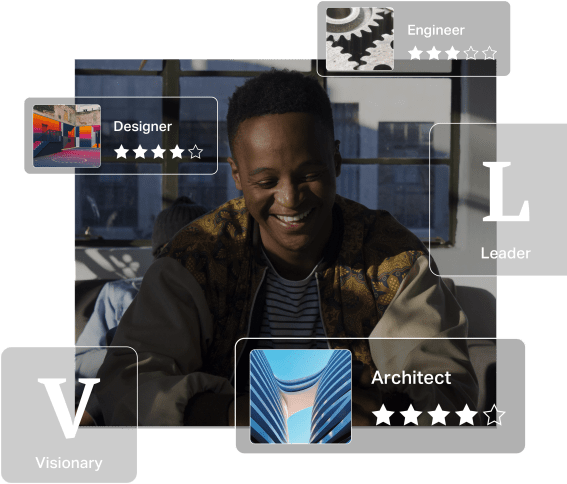In the dynamic world we live in today, where connections and networking have become paramount, informational interviews have emerged as powerful tools for career exploration and growth. Far from the traditional job interview setting, these conversations with industry professionals offer invaluable insights, knowledge, and potential opportunities.
In this blog post, we will explore the significance of informational interviews, provide practical tips on how to secure them, discuss essential questions to ask, delve into post-interview actions, and even provide an example of an informational interview.
The Purpose of Informational Interviews
An informational interview can be focused on a specific career or on a general career field. The purpose of an informational interview is to gain insights, advice, and knowledge from professionals who have experience in the field you are interested in. It provides an opportunity to explore different aspects of a career or industry, understand the skills and qualifications required, and gain a realistic perspective on the challenges and opportunities within that field.
If you have a specific career in mind, conducting an informational interview can provide valuable insights into the day-to-day responsibilities, required qualifications, career progression, and industry trends specific to the role. This can help you make informed decisions about your career path and understand what it takes to succeed in that particular role.
On the other hand, if you are exploring a general career field and haven’t narrowed down your focus to a specific job title or role, informational interviews can still be beneficial. Engaging with professionals who have diverse experiences within the field can help you understand the various career paths, specializations, and potential opportunities available. These conversations can provide a broader understanding of the industry, help you identify areas of interest, and guide you towards further research or exploration.
Remember, the purpose of an informational interview is to gather knowledge, insights, and advice. Whether you are exploring a specific career or a general career field, these conversations can provide valuable guidance, expand your network, and offer a deeper understanding of the industry.
Securing an Informational Interview
Securing an informational interview requires proactive effort and resourcefulness. Begin by leveraging your existing network and reaching out to friends, family members, or acquaintances who may have connections in your desired industry. Let them know about your interest in conducting informational interviews and kindly request their assistance in connecting you with relevant professionals.
Additionally, professional networking platforms can serve as valuable resources to identify individuals who align with your career interests. By leveraging these platforms effectively, you can expand your network, connect with industry experts, and unlock a wealth of knowledge and opportunities.
- LinkedIn: LinkedIn is the go-to platform for professional networking, offering a vast network of professionals from various industries. Create a compelling profile that highlights your skills, experience, and career aspirations. Utilize the advanced search feature to identify professionals in your desired field or industry. Send personalized connection requests, explaining your interest in learning from their expertise and kindly requesting an informational interview. Join relevant LinkedIn groups, participate in discussions, and engage with industry-specific content to expand your network further.
- Meetup: Meetup is an excellent platform for finding and joining professional groups and events in your area. Search for industry-specific or career-focused meetups and attend events relevant to your interests. Engage with fellow attendees, share your goals, and express your interest in informational interviews. Building connections with like-minded professionals in a relaxed and informal setting can often lead to opportunities for further conversations and mentorship.
- Industry-Specific Forums and Communities: Many industries have online forums or communities dedicated to professional discussions and networking. Research and identify active forums or communities relevant to your field of interest. Participate in discussions, share insights, and connect with individuals who demonstrate expertise or offer valuable perspectives. Over time, you can establish relationships that may lead to informational interviews or introductions to other professionals in the industry.
- Alumni Networks: Tap into the power of your alma mater’s alumni network. Alumni associations often provide networking opportunities, mentorship programs, and access to industry-specific events. Leverage these resources to connect with alumni who work in your desired field. Reach out to them, expressing your shared educational background and interest in learning from their experiences. Many alumni are eager to support fellow graduates and may be willing to offer informational interviews or guidance.
- Professional Associations: Joining professional associations relevant to your desired field can provide access to a network of professionals who are passionate about the same industry. Attend conferences, seminars, and networking events hosted by these associations. Actively engage with fellow members, share your goals, and express your interest in learning from industry experts through informational interviews. Professional associations often have mentoring programs or designated channels for connecting with experienced professionals.
Craft personalized, concise messages that clearly state your intentions and politely request a brief conversation to learn from their expertise and experiences. Demonstrating genuine interest and expressing the value you believe they can provide will increase your chances of success.
What to Ask During an Informational Interview
Once you’ve secured an informational interview, it’s crucial to make the most of this opportunity. Prepare a list of thoughtful questions to guide the conversation and gather meaningful insights. The goal is to gain knowledge and build a connection, so active listening and open-ended questions are key. Consider the following key questions to guide your discussion:
- Could you tell me about your career journey and how you got to where you are today?
- What are the current trends and challenges in your industry?
- What specific skills or qualities do you consider essential for success in this field?
- Are there any particular certifications, courses, or degrees that would be beneficial for someone aspiring to enter this industry?
- What advice would you give to someone starting their career in this field?
- Are there any resources, books, or professional associations you would recommend for further learning and development?
- Can you share any insights about potential career paths or areas of specialization within this industry?
- Do you know of any upcoming events or conferences that would be valuable for someone interested in this field?
- Are there any opportunities or contacts you could suggest for me to explore further?
Actively listen and engage in meaningful conversation. Ask follow-up questions based on the interviewee’s responses. This will demonstrate your genuine interest and curiosity.
Topics to Avoid During an Informational Interview
During an informational interview, it’s important to maintain a professional and respectful tone. While the conversation can be open and engaging, there are a few topics that are generally best to avoid to ensure a positive and productive experience:
- Personal or Sensitive Matters: Avoid delving into personal or sensitive topics unrelated to the industry or the interviewee’s professional experience. Keep the conversation focused on their career journey, industry insights, and professional advice.
- Salary or Compensation: It’s generally not appropriate to ask about specific salary figures or compensation packages during an informational interview. The purpose of these conversations is to gather knowledge and build connections, rather than discussing financial details.
- Job Opportunities or Requests for Employment: Informational interviews are not job interviews, so it’s essential to avoid directly asking for a job or pressuring the interviewee to provide employment opportunities. Instead, focus on learning about their career path and seeking advice for your own professional development.
- Criticizing or Disparaging Remarks: Maintain a positive and respectful tone throughout the conversation. Avoid making negative or disparaging comments about individuals, organizations, or industry practices. The goal is to learn and build connections, not to criticize or engage in negative discussions.
- Excessive Time Demands: Be respectful of the interviewee’s time and keep the conversation within the agreed-upon duration. Avoid asking for excessive favors or extending the conversation significantly beyond the allotted time unless the interviewee explicitly offers to continue the discussion.
- Personal or Confidential Information: Respect boundaries and avoid prying into the interviewee’s personal life or asking for confidential information about their organization or clients. Focus on gathering insights and advice relevant to your professional growth.
By maintaining a professional and respectful approach, you can create a comfortable and productive environment for the informational interview, maximizing the benefits for both parties involved. These conversations are opportunities to learn, build connections, and gain industry insights, so keep the focus on those areas to make the most of the experience.
An Example Informational Interview
Let’s explore an example conversation with Dr. Sarah Johnson, a seasoned veterinarian passionate about animal welfare. You initiated the interview to gain deeper insights into the profession and explore potential career paths.
During the conversation, Dr. Johnson shared anecdotes from her career journey, emphasizing the challenges and rewards of working in veterinary medicine. She stressed the importance of continuous learning, staying updated on advancements in animal care, and cultivating strong communication skills when dealing with pet owners.
Dr. Johnson provided insights into various specializations within the field, such as small animal medicine, equine care, or exotic animal care, allowing you to explore areas of interest further. She also recommended attending local veterinary conferences and joining professional associations to network with other professionals and stay updated on industry developments.
In the spirit of mentorship, Dr. Johnson offered to connect you with a local veterinary clinic for a potential job shadowing opportunity, allowing you to gain hands-on experience and observe the daily responsibilities of a veterinarian.
What to Do After an Informational Interview
After concluding an informational interview, it’s important to express your gratitude and follow up appropriately:
- Send a personalized thank-you note or email expressing your gratitude for the interviewee’s time, insights, and willingness to share their expertise.
- Reflect on the knowledge and insights you gained during the conversation. Summarize your meeting in writing and consider how the information you gathered aligns with your own career goals and aspirations.
- Follow up on any recommendations or resources shared during the interview. Explore suggested books, articles, or courses to deepen your understanding of the industry.
- Connect with the interviewee on LinkedIn and send a personalized invitation, reminding them of your conversation and expressing your interest in staying connected.
- Engage with the interviewee’s professional content on social media platforms by liking, sharing, or commenting on their posts. This will help maintain the connection and demonstrate your ongoing interest in their work.
Conclusion
Informational interviews have the potential to unlock doors and open up a world of possibilities. These conversations provide a unique opportunity to learn from industry professionals, gain valuable insights, and build meaningful connections. Approach each informational interview with genuine curiosity, respect, and gratitude for the interviewee’s time and expertise. Remember that the benefits extend beyond a single conversation, as the connections you make can become mentors, advocates, or even potential employers. Keep nurturing these relationships by staying connected on professional platforms and continuing to engage with their work.
As you embark on your journey of conducting informational interviews, remain open-minded, flexible, and adaptable. Embrace the knowledge and experiences shared with you, and use them to shape your own career path. Each conversation is a stepping stone toward personal and professional growth, helping you make informed decisions and discover new opportunities.
So, take the first step. Reach out to professionals in your desired field, start conversations, and unlock the power of informational interviews. Your willingness to learn and connect may lead to exciting new avenues and shape the trajectory of your career in ways you never imagined.
Explore over 1,000 Careers and 400 Degrees.
Take our Career Test.
Join our CareerExplorer Discord Community.


